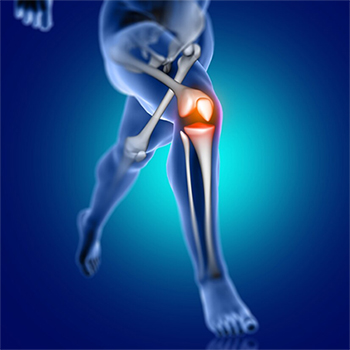Introduction
Joint pain, also known as arthralgia, is a common medical condition characterised by discomfort, soreness, or inflammation in one or more joints of the body. It can affect people of all ages and is often a symptom of an underlying health issue or injury. Joint pain can range from mild to severe and may be acute or chronic, impacting mobility and quality of life.
Understanding Joint Pain
Joint pain refers to discomfort, soreness, or inflammation in one or more joints of the body. It can affect various joints, such as the knees, hips, shoulders, wrists, and ankles. Joint pain can be caused by several factors, including arthritis, injury, overuse, inflammation, and underlying medical conditions.

Causes of Joint Pain
The causes of joint pain can vary widely. They may include osteoarthritis, rheumatoid arthritis, gout, bursitis, tendinitis, injury, and autoimmune diseases.
Symptoms of Joint Pain
Symptoms can range from mild discomfort and stiffness to severe pain, swelling, restricted movement, and difficulty performing daily activities.
Homoeopathy and Joint Pain
Homoeopathy offers a holistic approach to managing joint pain by addressing the underlying causes, reducing inflammation, and promoting natural pain relief. Homoeopathic remedies are selected based on an individual's unique symptoms, overall health, and constitutional factors. The goal of homoeopathy is to stimulate the body's self-healing mechanisms and restore balance, leading to improved joint health and overall well-being.
Homoeopathic Medicines for Joint Pain
- Aconitum napellus
- This remedy may be helpful for pain and inflammation that comes on suddenly after exposure to cold wind and weather.
- The person is likely to feel fearful, panicked, or agitated.
- Arnica
- Chronic arthritis with a feeling of bruised soreness can indicate a need for this remedy.
- Pain is worse from touch, and may occur in joints that were injured in the past.
- Belladonna
- Sudden flare-ups of arthritis with a sensation of heat and throbbing pain indicate a need for this remedy.
- The joints look red and inflamed, and the surface may feel hot to the touch.
- Bryonia
- This remedy relieves joint pain improved by staying immobile and applying pressure.
- Calcarea phosphorica
- Stiffness and soreness of the joints, worse from drafts and cold, may be relieved by this remedy.
- Aching bones and tiredness are common, and the person feels worse from exertion.
- Rhus toxicodendron
- This relieves muscular and articular pains at the beginning of motion, and then improves by slow motion.
Benefits of Homoeopathic Treatment
- Individualised Care: Homoeopathy recognizes that each person is unique. A homoeopath will assess your symptoms, medical history, and lifestyle to prescribe a personalised treatment plan tailored to your needs.
- Gentle and Natural: Homoeopathic remedies are derived from natural substances and are known for their minimal side effects. They work in harmony with the body, promoting self-healing and overall well-being.
- Holistic Approach: Homoeopathy takes into account not only the physical symptoms but also the emotional and mental aspects of an individual. It aims to restore balance at all levels, providing comprehensive care.
- Improved Quality of Life: By addressing the underlying causes of joint pain and promoting natural pain relief, homoeopathy strives to enhance your quality of life, allowing you to engage in daily activities with greater comfort and mobility.
Patient Review
Consulting a Homeopath
If you are seeking homoeopathic treatment for joint pain, it is essential to consult with a qualified and experienced homoeopath. At Sanjivani Homeopathy Clinic, our team of skilled homoeopaths will conduct a thorough evaluation, considering your symptoms, medical history, and individual characteristics to develop a personalised treatment plan.
Sanjivani Homeopathy Clinic USP
- No homoeopathy Dietary Restrictions:
Allows patients to enjoy foods like onion, garlic, and coffee, ensuring a stress-free treatment journey.
- 24/7 Online Consultations:
Enables convenient access to doctors with detailed counseling, history management, and follow-ups.
- Highly Skilled Team:
Experienced BHMS and MD doctors, supported by multilingual and professional staff.
- Patient-Centric Care:
Simplifies treatment with modern, adaptable solutions and clear communication.
Click Here for Detailed "Sanjivani USP"
FAQ's
- What is homoeopathy ?
Homoeopathy is a holistic science which belives in the law of Similia Similibus Curenter i.e Like Cures Like .It was discovered by Dr Samuel Christian Hahnemannn in 1796.
- Is there any side effects of homoeopathy?
As homoeopathic medicines are made from natural substances this medicines have no side effects and are completely safe to consume
- Is there any diet restriction to take homoeopathic medicines?
There are no diet restrictions for homoeopathic medicines. One should only avoid eating or drinking any liquid other than water at least 30 minutes before and after taking homoeopathic medicines.
Click Here for "Frequently Asked Questions."
Conclusion
Joint pain can be debilitating, affecting your daily activities and overall well-being. However, with the holistic approach of homoeopathy, there is hope for natural relief and improved joint health. Sanjivani Homeopathy Clinic is dedicated to providing personalised and effective treatments for joint pain. Contact us today to embark on a journey towards joint pain-free living and enhanced quality of life.
Disclaimer : The information provided in this blog is for educational purposes only and should not be considered medical advice. Please consult with a qualified healthcare professional before starting any treatment for Joint Pain or any other medical condition.


